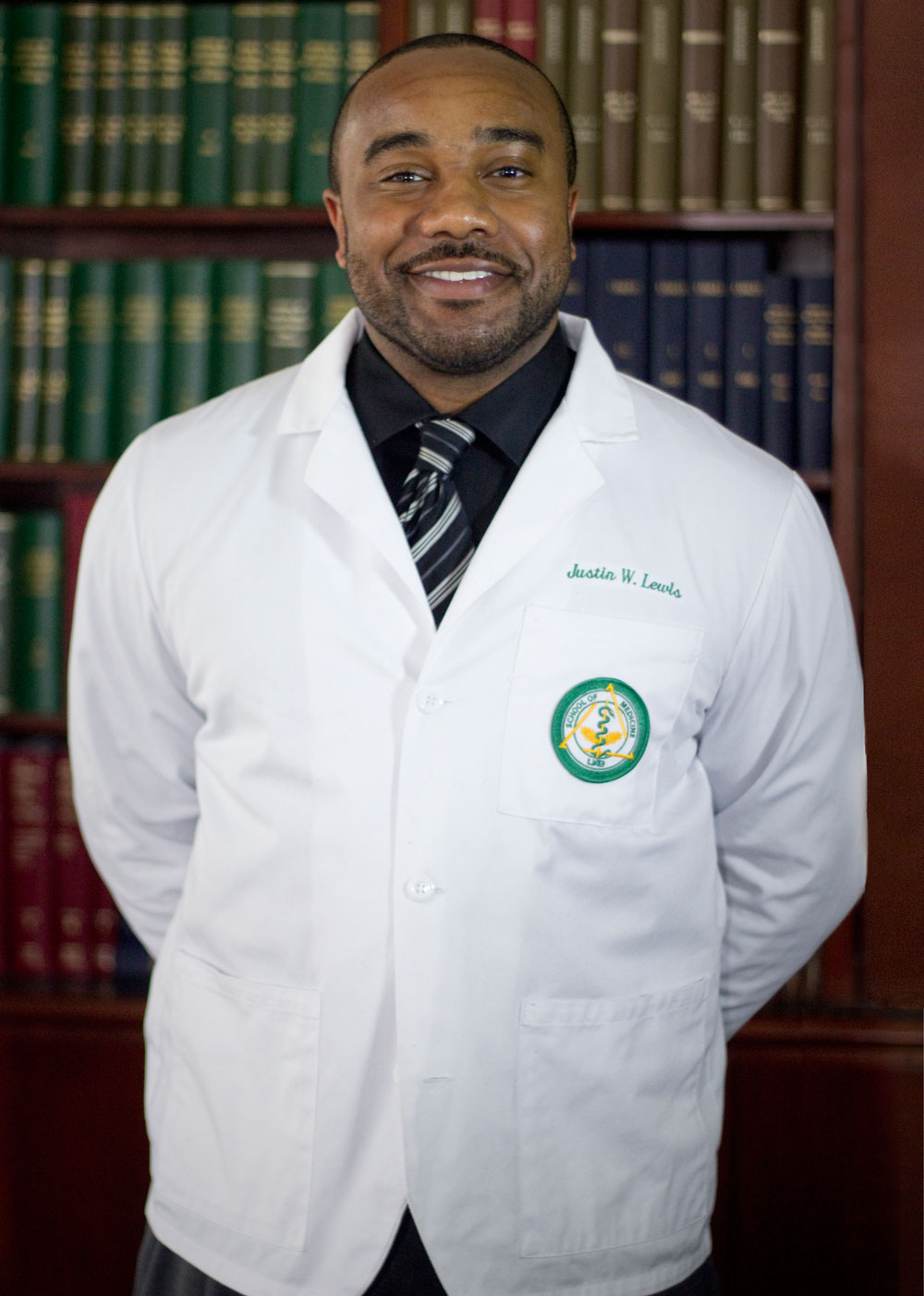 Justin Lewis, who began his second year of medical school this fall, says he “innately” knew he wanted to be a doctor when he was growing up in Montgomery, Ala. “I remember being in the third grade and being asked what I want to be when I grow up, and I kind of instinctively said a doctor,” he says.
Justin Lewis, who began his second year of medical school this fall, says he “innately” knew he wanted to be a doctor when he was growing up in Montgomery, Ala. “I remember being in the third grade and being asked what I want to be when I grow up, and I kind of instinctively said a doctor,” he says. Lewis attended UAB for his undergraduate education, where became a member of Alpha Epsilon Delta, the pre-health honor society, and served as president of the Minority Association of Pre-health Students. He was well on his way to earning a B.S. in biology when a family emergency put Lewis’s dream of going to medical school on hold.
“During my senior year of college, my father developed a brain tumor,” he says. “After the initial surgery, he developed severe post-op complications that resulted in him almost losing his life, and he had to go through almost a year of rehabilitation. I don’t come from a very wealthy background—I’m the youngest of three children, and my parents put all three of us through college—and during this time period my parents experienced a severe financial crisis. My oldest sister had just started teaching kindergarten and she has two little girls, and my other sister was getting her Ph.D. in Chicago, so I stepped in to help my parents.”
Despite having earned his bachelor’s degree in biology from UAB in 2006 with the intention of applying to medical school, Lewis launched a career in retail management in order to help with his family’s finances.
But his heart remained in medicine, and in 2013, after seven years in business, he applied to medical school. Not only was Lewis accepted, he was also awarded an African-American Medical Students’ Scholarship, which further boosted his confidence. He was also awarded the W. Hudson Turner, M.D., Endowed Medical Scholarship. “Getting back on track toward achieving my goal of becoming a doctor, and then receiving a scholarship, was very emotional,” he says. “I’ll never forget the feeling of gratitude, sheer joy, and almost disbelief I felt in that moment. And then sharing the news with my parents and seeing their excitement—my mother began to cry, so it was a very profound experience for me and my whole family.”
Lewis can look to his own family for role models who followed their dreams of becoming physicians—his aunt, a pediatrician in California, is married to an internal medicine physician. “My aunt, especially, has always been very passionate about what being a doctor means and how it’s such a powerful role, not just in the clinical setting but also in terms of impacting society and the community as a whole,” Lewis says. “She’s also a huge advocate for diversity in medicine and in addressing disparities in health care. Although we’ve made progress, I agree that there are still too many issues in terms of health care disparities that we need to address.”
Perhaps influenced by his aunt, Lewis says that, in addition to the responsibilities all medical students have, he feels an added duty to serve as an example for young people back in his hometown. “I used to tutor students in Montgomery, often students who are from rougher areas of the community. When I would tell them I’m working toward becoming a doctor, it almost seemed foreign to them—like, ‘Wow, this African-American male from Montgomery, Alabama, from way outside of town, is on his way to medical school.’ It’s like that they can’t conceive of that for themselves. So I think seeing someone who has achieved a certain goal can help inspire others to also believe they can achieve their goals despite whatever background they may have.”
Lewis says that he is leaning toward specializing in primary care because it allows physicians to develop strong, lasting relationships with their patients. As for where he plans to practice, he says he intends to stay close to home. “I definitely plan on practicing in Alabama.”